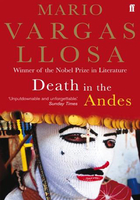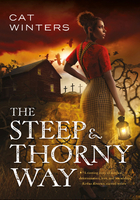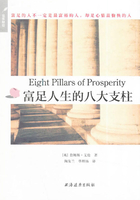The Letters in Mount Kaf
"Must a name mean something?"
—Lewis Carroll,
Through the Looking Glass
When, after his sleepless night, Galip stepped out into the street to find the usual monotone grays of Ni?anta?? brightened by a strange white light, he saw that it had snowed more than he'd thought. The crowds on the pavement seemed unaware of the translucent icicles hanging from the eaves of the apartment buildings. After a short visit to the local branch of the Labor Bank (which Rüya called the Vapor Bank, in homage to the bluish clowd of dust, smoke, exhaust, and coke fumes that hung over Ni?anta?? Square), Galip was able to establish that Rüya had not withdrawn a particularly large sum of money from their joint account over the past ten days, that the bank's heating system had broken, but that everyone was in a good mood because one of the grotesquely made-up bank tellers had won a prize in the National Lottery. He continued down the street, past the florist's foggy window, past the covered passage where tea makers' apprentices darted to and fro with their trays, past ?i?li Progressive High School, where he and Rüya had once gone to school, and under the icicles hanging from the ghostly branches of the chestnut trees, arriving finally at Alaaddin's shop. Alaaddin was wearing the same blue hood that Celal had described in his column nine years earlier, and he was wiping his nose.
"Alaaddin, how are you—you're not ill, I hope?"
"I've caught a cold."
Rüya's ex-husband had once written for a string of political periodicals; though Galip agreed with some of them, others he opposed most vehemently, but as he asked Alaaddin if he happened to have any of them in stock, he pronounced each title with equal care. A strange look came over Alaaddin's face—fearful, suspicious, childish even, though in no way hostile—as he reminded Galip that only university students read such things. "What could you possibly want with them?"
"I want to solve their puzzles!"
After laughing to show he got the joke, Alaaddin said, "But son, you know they never have puzzles in these things!" Only a true puzzle addict could have sounded so mournful. "Here are two new ones. Would you like them too?"
"I would," said Galip, and then, whispering like an old man who's just bought a porn magazine, he said, "Would you mind wrapping them all up in newsprint?"
As he sat on the Emin?nü bus, he felt the package in his lap grow strangely heavier, and, stranger still, he felt as if there were an eye hanging over him, watching everything he did. But it did not belong to a fellow passenger, for they were all gazing absently at the crowds in the snowy streets as the bus rocked back and forth, back and forth, like a steamboat in a stormy sea. Alaaddin had wrapped up his political periodicals in an old Milliyet, and now, as he looked down at it, he saw that Celal's column had ended up on top; and there was Celal, staring up at him from his picture. It was the same picture he'd seen every morning for years and years, but this was the strangest thing of all: Today it was looking at him in a new way. I understand you perfectly, the picture told him. I'm watching your every move! Galip put his thumb over the picture, hoping to save himself from this eye that could read his soul, but throughout that long bus journey he still felt its presence and its all-seeing gaze.
The moment he reached his office, he tried to call Celal at work, but he still wasn't there. He unwrapped his package, took out the left-wing journals, and began to read them carefully. Just to leaf through them was to return to the tense but heady days when liberation, victory—the Day of Judgment!—had seemed just around the corner. When exactly had he lost faith? He could no longer remember. From time to time he'd return to the list he'd made on the back of Rüya's goodbye letter and phone a few of her old friends, and afterward more memories returned to him, and to Galip they were as beautifully implausible as the films they'd seen as children at the outdoor movies, wedged between the walls of the mosque and the coffeehouse. Those old black-and-white films from Ye?il?am Studios had never been strong on plot, and sometimes they made so little sense to Galip that he'd wonder if he'd missed the point entirely, but then it would occur to him that perhaps this was the point: to create a new world from nothing, a neverland populated by rich cruel fathers, gold-hearted paupers, cooks, manservants, beggars, and cars with fins (as Rüya was fond of pointing out, the license plate on the DeSoto in one film was often the same one they'd seen in another movie a week earlier); but still he would sit there sneering at their implausible theatrics, while everyone else in the audience heaved great sighs and shed great tears, until suddenly—you guessed it—he too would succumb to the sorcerer behind the screen and find himself weeping with the anguished, wilting, and oh-so-pure heroines, sharing the miseries of the sad, self-sacrificing, but still resolute heroes.
Hoping to acquaint himself further with the black-and-white fairytale world of little left-wing splinter groups that Rüya and her first husband had once inhabited, he rang an old friend who kept an archive of political journals.
"You're still collecting those journals, aren't you?" Galip asked in a confident voice. "One of my clients is in trouble, and it would help with our defense if I could take a look at your archive."
"I'd be delighted!" said Saim, as good-natured as ever, and pleased that someone had rung him about his archive. He suggested that Galip drop by that evening, at half past eight.
Galip went on working at the office until night fell. He tried Celal a few more times but failed to get through. The secretary said either that he "wasn't in yet" or that he'd "just stepped out," and every time Galip hung up, he'd look up at the shelves that Uncle Melih had left to him, see that piece of newsprint that Alaaddin had used to wrap his journals, and there it would be again, Celal's eye staring down at him. As he listened to the story of a dispute that had broken out among the heirs to a small shop in the Covered Bazaar—it was hard to follow, because the extraordinarily obese mother-and-son team who had come to see him kept interrupting each other, and he could not help noticing that the mother's bag was stuffed with medicines—and later, as he conversed with a policeman who hid his eyes behind dark glasses and wanted to sue the government for miscalculating his date of retirement, as he tried to explain to this policeman that, according to the current law, the two years he'd spent in a mental institution did not count as employment, he almost felt as if Celal were there with him in the room.
One by one, he rang Rüya's friends. With each call, he came up with a new excuse. He asked her old lycée friend Macide if she could give him Gül's number—it was something to do with a case he was working on, he said. But when he got through to the beautiful home of the rose-scented Gül, whom Macide did not like at all, a well-spoken maid informed him that she had delivered her third and fourth children at the Gülbah?e Hospital only the day before, and that he could see these adorable twins (named Hüsn and A?k, Beauty and Love) if he ran straight over to the hospital and looked through the window of the nursery between three and five. Figen told him to tell Rüya to get well soon and promised to return What Is to Be Done? (Chernyshevski) and that Raymond Chandler. As for Behiye, she told him that no, she had no uncle who worked for the Narcotics Branch of the Police Directorate, and Galip could tell from her voice that no, she knew nothing of Rüya's whereabouts. What Semih couldn't understand was how he'd manage to track her down to this basement sweatshop and, yes, it was true, she was working away feverishly with a group of engineers and technicians, trying to produce Turkey's first zipper, but no, she was not aware that there'd been stories in the press recently about black-market bobbins so was not in a position to help him with his case, though she did want him to pass on her very fondest (and sincere, Galip was sure of it) regards to Rüya.
But no matter how he changed his voice, no matter how many people he impersonated, he still couldn't track her down. Süleyman, who sold forty-year-old English encyclopedias door to door, told Galip (then impersonating a middle school principal) that there had to be a mistake—not only did he not have a daughter named Rüya in middle school, he didn't have any children! He was entirely convincing. It was the same with Ilyas, who transported coal from the Black Sea in his father's barge—he was positive he had not left his dream book in the Rüya Theater because he hadn't been to the movies for months and didn't own a notebook like that anyway; and with As?m, who imported elevators, who said he could not possibly be responsible for the malfunctioning lift in the Rüya Apartments, because it was the first time he'd ever heard of an apartment building or a street bearing that name:When they uttered the name Rüya or when he asked them about dreams in general, he detected no panic, no guilt, in their voices; they were, Galip decided, speaking sincerely and utterly innocent. As for Tar?k, who spent his days producing rat poison in his stepfather's laboratory and his nights writing poems about the alchemy of death, he was only too pleased that the students at the Law Faculty wished him to give a talk on his thematic treatment of dreams and the mysteries of dreams in his poetry, and he promised to meet up with them that evening in Taksim, right in front of the old pimp coffeehouses. Kemal and Bülent were traveling in Anatolia: one was putting together a calendar for Singer sewing machines and had gone to hear the reminiscences of an Izmir seamstress who, fifty years earlier, danced a waltz with Atatürk amid journalists and warmapplause, only to sit right down at a pedal-operated sewing machine to complete a pair of Westernstyle trousers as they all sat and watched. The other was traveling by mule from village to village, coffeehouse to coffeehouse, hawking magical backgammon dice carved from the thousand-year-old thigh-bones of the old man Europeans called Papa Noel.
He didn't get through to everyone on the list—the phone connected him to several wrong numbers or the line was bad; on snowy and rainy days this happened more often—but he continued plowing through the political journals well into the evening and was soon up-to-date on the changing factions. He knew who the informers were who'd been tortured, killed, or sent to prison; who'd perished in which scuffle and who'd arranged the funeral; which letters the editors had answered, which they'd sent back, and which they'd published. He knew all the names and pen names of the cartoonists, the poets, and the editorial staff too, but nowhere could he see Rüya's ex-husband's name or any of his aliases either.
As the sky grew dark he sat sad and motionless in his chair. A crow perched on the windowsill gave him a curious, sideways glance; the sounds of a Friday evening rose up from the crowded street below. Galip drifted off into a happy and inviting dream. When he awoke much later, night had fallen, but he could still sense the crow's eye boring into him, and Celal's eye too. Slowly he moved about the dark room shutting drawers, felt for his overcoat, and left the office, feeling his way through the dark corridor. All the lights in the building were out. The tea boy was cleaning the toilets.
As he crossed the snow-covered Galata Bridge, he felt the cold; a harsh wind was blowing in from the Bosphorus. He stopped at a pudding shop in Karak?y, where he sat down at a marble table between a pair of mirrors that reflected each other; turning his back on them, he ordered fried eggs and a bowl of chicken and vermicelli soup. On the only wall that wasn't covered with mirrors was a mountain landscape that seemed to take its inspiration from postcards and Pan Am calendars; seeing the snow-capped mountains rise up between the evergreens, behind a glassy lake, Galip was reminded not of the postcard Alps that had inspired it, but of Mount Kaf, the magic mountain he and Rüya had visited so often as children.
As he was taking the funicular to Tünel, he became embroiled in an argument with an old man he'd never met about the famous accident that had occurred in this tunnel twenty years earlier: Was it really because the cable broke that the cars flipped off the track and went crashing into Karak?y Square, breaking through walls and glass as gleefully as a herd of wild stallions? The nameless old man happened to be from Trabizon, as was the drunk machinist who had been in charge that day. The streets of Cihangir were empty. When Saim opened his door to give a warm but distracted welcome, Galip deduced that he and his wife were watching the same documentary as the janitors and the cabdrivers in the coffeehouse downstairs.
The Things We Left Behind was a catalog of Ottoman achievements in the Balkans; as the presenter talked of the old mosques, fountains, and caravansaries that had now fallen into the hands of the Greeks, the Albanians, and the Yugoslavs, he seemed close to tears. As Galip sat there on the imitation rococo sofa that long ago lost its springs, watching the sad parade of lost mosques, he felt like the neighbor's child, invited over to see a soccer match; Saim and his wife seemed to have forgotten he was even there. Saim bore a close resemblance to a now-deceased wrestler who had once won an Olympic medal and whose picture you could still see hanging at the greengrocers; his wife looked like a sweet, fat mouse. There was a dust-colored table in the room and a lamp that matched; hanging inside a gilt frame on the wall was the portrait of a grandfather who looked more like the wife (was her name Remziye? Galip asked himself lazily) than it did his friend Saim; on the buffet sat a calendar sponsored by an insurance company, an ashtray advertising a bank, a collection of liqueurs, a vase, a silver sugar bowl, and a set of coffee cups; and there, on the shelves that lined two walls, piles and piles of dusty periodicals and loose paper: the "archive" Galip had come to see.
Even years ago, when they were still at the university, it was already a joke; in a moment of rare candor Saim himself had admitted that he had not set out to compile "the definitive archive of our great revolution" (as his classmates so mockingly put it); he had been pushed into this role by his own "indecision." This was not, however, the indecision of a young man caught "between two classes" (as people liked to say in those days); he was caught, rather, between warring leftist factions, and he couldn't decide which one to choose.
He'd made sure to attend every political meeting and every student forum, spent his days racing from university to university, canteen to canteen, listening carefully to what people said, giving "every viewpoint, every political leaning" the attention it deserved, and because he was too shy to ask many questions, he became an avid reader of left-wing propaganda, desperately seeking out every mimeographed statement, brochure, and leaflet then in circulation. (Pardon me for asking, but would you happen to have a copy of that statement they were handing out at the Technical University the other day—the one calling for the Turkish language to be cleansed of foreign words?) Soon he had accumulated far more than he could ever read, but still he did not know which political line he should take, and this must have been when he began to think of the piles of unread material as a collection. With time, the urge to read lessened and, with it, the need to make up his mind; but by now his "documentary river" had grown so wide and sprouted so many tributaries that it would have been a shame to let it flow away into nothing; it cried out for a dam, Saim decided (the choice of words was his, for his degree was in engineering). He generously decided to devote the rest of his life to this noble project.
When the program was over, they turned off the set; after they'd gone through the usual polite questions, Saim and his wife fell silent and gazed at him with questioning eyes, so Galip launched straight into his story: he was defending a university student who'd been accused of a political crime he'd not committed. No, he did not mean to say there hadn't been a death: at the end of a badly planned, badly executed bank robbery, one of three young men involved had, while plowing through a crowd of shoppers on his way from the bank to the stolen taxi they were using as their getaway car, accidentally knocked over a little old lady. He bumped into her so violently that she fell to the pavement, dying the moment her head hit the scene of the crime. ("Wouldn't you know it!" said Saim's wife.) They'd only managed to catch one of the bank robbers, a quiet boy from a "good family," but he was carrying a gun. Being in thrall to his partners in crime, his young client had, of course, resolved not to give their names to the police, and the amazing thing was that he succeeded in this, despite being subjected to torture; but unfortunately, as Galip had discovered in the course of his investigations, he had done so by quietly assuming responsibility for the old lady's death. In the meantime, the boy who had actually knocked her down—an archaeology student named Mehmet Y?lmaz—had been killed by unknown assailants in a volley of gunfire while writing coded slogans on the wall of a house in a new shantytown just beyond Umraniye. One might have expected the boy from the good family to name him as the true culprit at this point, but the police refused to believe that the dead Mehmet Y?lmaz was the real Mehmet Y?lmaz, and in another unexpected development, various members of the cell responsible for the bank robbery had come forward to confirm that the real Mehmet Y?lmaz was still publishing articles in its journal, and that these articles showed all his old resolve. After explaining that he had not taken on this case at the request of the quiet boy, "now languishing in prison," but on behalf of his wealthy well-meaning father, Galip said he wanted to (1) see any articles that might establish that the new Mehmet Y?lmaz and the old Mehmet Y?lmaz were two different people; (2) establish the identity of the person who had assumed the identity of the dead Mehmet Y?lmaz by examining his pen names; (3) inspect any materials issued by the political faction responsible for this strange incident over the past six months, for as Saim and his wife must be aware, it just so happened that Rüya's ex-husband had once been its leader; and (4) make an inventory of ghostwriters using the names of the dead and missing, with a full list of their aliases.
Saim was only too keen to help, and they began their search at once. During the first two hours, while they drank the tea and nibbled the cake that the wife (he remembered her name now, it was Rukiye) was kind enough to serve them, they looked only at the writers' names and aliases. Later, they widened the search to include the aliases used by the faction's informers, martyrs, and editorial staff; and as they perused the death notices, the warnings, the confessions, the bomb reports, the doctrinal disagreements, the poems, and the hollow slogans—things they had begun to forget even when they still lived in this shadowy underworld—they still could not stop themselves from falling under its spell.
They found aliases that did not hide the fact that they were aliases, and aliases that had been manufactured from these aliases, and aliases derived from portions of the manufactured aliases. They solved acrostics puzzles, letter games that never quite panned out, and almost transparent secret codes, though they were unable to establish if this was by design or accident. Rukiye sat down at the end of the table where the men were sitting. As Galip hunted for clues that might lead him to Rüya and pretended to look for evidence to prove the innocence of a boy unjustly charged with murder, a familiar sadness fell over the room—that mixture of boredom and impatience that he associated with those endless family gatherings on New Year's Day, when they would play lotto and race paper horses across the sitting-room floor as the radio blared in the background. Through the gap in the curtains, he saw that it had begun to snow again.
Still they searched on, Saim the patient professor, Galip his bright new protégé, both delighting in the chase as they traced their aliases' adventures, their travels from faction to faction, their rise and fall; when, from time to time, they discovered that one of them had disappeared or been caught and tortured, or if they discovered that someone whose picture had appeared in one of the early periodicals had later been gunned down by unknown assailants, they would break off their search for a few moments of sad silence, but then they would see another word game, stumble onto another curious fact, and before long they would be back on the trail, reconstructing their aliases' lives.
According to Saim, most of the names in the periodicals were invented, and so too were quite a few of the heroes whose exploits they recounted, as were many of the demonstrations, meetings, secret councils, underground party congresses, and bank robberies these same names had organized. To give an extreme example, he read aloud a story about a people's revolt alleged to have taken place twenty years earlier in the town of Kü?ük ?eruh, in east Anatolia, between Erzincan and Kemah, for which one of these journals had given full details, including dates; after a vase hit him on the head, the governor died and the rebels set up a provisional government; they went on to issue a pink stamp carrying the picture of a dove and produced a daily newspaper that printed nothing but poetry, while opticians and pharmacies worked together to distribute free glasses to the cross-eyed and others gathered wood for the primary school stove, but before they could finish the bridge that was to have linked them with civilization, Atatürk's armed forces arrived to take the matter in hand, and in less time than it took the cows to eat the smelly carpets that covered the earthen floor of the town mosque, the rebels were swinging from plane trees in the square. But, Saim explained—in the same calm way he had pointed out the secret signs in maps and letters—there was no such town as Kü?ük ?eruh, and as for this insurrection, this phoenix rising from the ashes of history, the names of those alleged to have taken part in it were likewise false. Here the trail went cold, for the secret behind the false names was buried in poetry, concealed behind an intricate web of rhymes and repetitions. They did stumble across a clue pertaining to Mehmet Y?lmaz (this concerned a political murder committed in Umraniye around the same time as Galip's story), but it was like watching one of those old black-and-white films that keeps breaking all the time, for they were unable to find a follow-up to this story in any of the later issues.
At this point, Galip rose from the table and phoned home, to tell Rüya in a gentle voice that he was probably going to be working at Saim's house until very late, so she shouldn't wait up, she should go to sleep. From the other side of the room, Saim and his wife told Galip to say hello to Rüya for them; of course, Rüya returned the compliment.
They went back to playing hunt-the-alias, to deciphering codes and creating new ones, and when every square inch of the room was covered with newspapers, periodicals, statements, and loose sheets of paper, Saim's wife left the two men to their quest and went to bed. It was long past midnight; the snow had draped the city in enchanted silence. Endlessly fascinated by these reams of pale print, all from the same ink-starved mimeograph machines, all culled from the smoke-filled university canteens, rainy strikers' tents, and remote train stations where they'd first been distributed ("But there's so much missing!" Saim would protest, ever the modest archivist), Galip searched on and on, delighting in the typesetting and spelling errors, until Saim emerged from the back room with an article he announced, in the proud voice of a true collector, as very rare: "The Case Against Ibn Zerhani, or The Story of a Sufi Traveler Whose Feet Never Left the Ground."
It was a bound copy of a typescript, and Galip leafed through its pages with care. "Our friend comes from a town near Kayseri whose name cannot be found on a medium-sized map of Turkey," Saim told him. "His father was a dervish from a small lodge who educated him in religion and Sufism throughout his childhood. Years later, he did as Lenin had done when he was reading Hegel: While reading a book entitled The Hidden Meaning of the Lost Mystery by the thirteenth-century Arab Sufi Ibn Zerhani, he kept a running 'materialist' commentary in the margins. He then copied out these notes, substantiating them with long and unnecessary parenthetical comments. Then he added annotations, writing a sort of treatise—as if he were musing on someone else's obscure and enigmatic document. To this he added a foreword in which he again discussed the contents as if they'd been written by other people. Then he typed the whole thing up. He prefaced all this with a thirty-page account of his own legendary adventures as a holy man and revolutionary.
"The interesting part of his legend is his account of how the writer came to see the links between the Sufi philosophy that Westerners call pantheism and the sort of materialist philosophy he himself had developed under his father's influence; the connection came to him as he was strolling one evening through the town cemetery. Years before, while strolling past the gravestones, he'd seen a crow among the grazing lambs and dozing ghosts; when, twenty years on, he gazed up at the same but now much taller cypress trees, he spotted the same crow—as you know, in Turkey crows can live longer than two hundred years. He saw at once that everything about this impudent flying beast—its legs, its head, its body, its wings—had remained exactly, but exactly, the same, and as you know, crows stand for higher thought. He even provided a likeness of the crow; it's on the cover. The book proves that every Turk aspiring to immortality must play Boswell to his own Johnson, must be his own Goethe and his own Eckermann at one and the same time. He typed six copies. I'd be surprised if you'd find a single one in the secret police archives."
The two men gazed for some time at the crow on the cover and then opened the book to read the author's autobiography. Although he had led a sad, empty, dismally provincial life, traveling back and forth between his house and the hardware store he'd inherited from his father, it still spoke to their imaginations, made them feel as if there were a third man in the room. There is only one story, Galip felt like crying out. All these words and letters, all these dreams of liberation, all these memories of torture and defeat and everything that's ever been written about them, be it in joy or sorrow—they all add up to a single story! All these years, Saim had been collecting these papers, leaflets, and periodicals, patiently casting his net in the sea of print, and somewhere along the way he'd found it, the story of stories. He knew he'd found it, but he could no longer see it; it was buried under piles and piles of paper, and he'd lost the key to the story, the only word that could unlock it.
When they came across Mehmet Y?lmaz's name in a four-year-old issue, Galip said it was a coincidence and perhaps it was time for him to go home, but Saim stopped him, saying that nothing in these periodicals—he'd now begun to call them my periodicals—was a coincidence. For the next two hours, they embarked on the search to end all searches, racing from journal to journal, their eyes scanning each page like spotlights; they soon discovered that Mehmet Y?lmaz had converted first to Ahmet Y?lmaz and then, in a journal featuring a well on the cover and littered with peasants and chickens, he'd become Mete ?akmaz. It was not hard for Saim to establish that Metin ?akmaz and Ferit ?akmaz were also the same person, but by now our friend had given up on theoretical writings and turned his hand to writing lyrics for the sort of Turkish saz music one hears at memorials in smoky wedding halls. But it didn't stop there. For a short while he reverted to political writing (to prove that everyone except the author was a police informer); later still he became a nervous and irascible mathematically inclined economist, determined to decipher the perversities unleashed on the world by British academics, but their dark, infelicitous clichés soon proved too much for him. Saim tiptoed into his bedroom, returning with yet another batch of journals, and presto! there he was again, in an issue published three years and two months earlier—it was almost as if Saim had planted him there. Now his name was Ali Harikaülke: looking forward to the beautiful future when kings and queens would be obsolete and the rules of chess could change accordingly; when happy well-nourished boys named Ali would, by sitting cross-legged like good Turks with their backs against the wall, solve forever the riddle of Humpty Dumpty. On the next page it stated that Ali Harikaülke was not the author but the translator. The true author was an Albanian mathematics professor. But what shocked Galip most—after the Albanian professor's life story—was to see Rüya's ex-husband dispensing with aliases altogether, writing openly under his own name.
"Nothing's as strange as life—except writing!" cried Saim proudly, after they'd stared at it in silent shock for some time.
He tiptoed back into his bedroom, returning with two crateloads of periodicals. "These come from a splinter group with Albanian affiliations. There's a story here, a strange enigma I've spent years investigating. It has some bearing on your own investigation, as you shall see."
He brewed up more tea, pulled the documents he needed from his shelves and boxes, and spread them across the table.
"It began six years ago," he began, "one Saturday afternoon, when I was leafing through the latest issue of People and Labor, just to see if there was anything of interest.… It was one of three journals put out by splinter groups emulating Enver Hoxha and the Albanian Labor Party, but as it happened, each was bitterly opposed to the other two.… So anyway, I was going through this journal when suddenly I came across this photograph, this article—it was about an induction ceremony, in honor of the group's new recruits. It amazed me, not because it described a Marxist meeting in a country where Communist activity of any sort is banned, or because it talked of people reciting poetry and playing the saz; all the little left-wing journals ran pieces like this in every issue, because the only way to keep their heads above water was to look as if they were growing by leaps and bounds.
"The black-and-white photograph showed a hall draped with posters of Enver Hoxha and Chairman Mao. There were people reciting poems, and surrounding them was this crowd puffing on their cigarettes with extraordinary intensity, as if it were a sacred rite. But what really sparked my interest was the caption, which made pointed references to the hall's 'twelve columns.' Stranger still, all the new recruits had chosen aliases like Hasan, Hüseyin, and Ali—as you probably know, these are all Alevi names—and as I was soon to discover, they were not just Alevi names but names of famous Sufis, Bekta?i sheikhs. This wouldn't have meant a thing to me unless I'd already known how strong the Bekta?i Sufi orders had once been in Albania, but because I did, I knew at once that I was on to something, something incredible, so I really threw myself into it and over the next four years I read every book I could find on the Bekta?is, the Janissaries, and the Hurufis—you know about this sect, I'm sure, they're the ones who divine secret meanings from the works in the Koran. I also read up on Albanian communism, and when I put it all together I had unraveled a conspiracy that dates back a hundred and fifty years.
"You know what I'm talking about, don't you?" Saim said, and then he took Galip through the seven hundred years of Bekta?i history, from Hac? Bekta? Veli to the present. The order had its roots in the Sufi, Alevi, and Shamanist traditions, Saim told him; it had played a part in the inception and expansion of the Ottoman Empire, while also fostering the long tradition of revolt and revolution for which the Janissary army—a Bekta?i stronghold—became so famous. If you remembered that every Janissary belonged to the Bekta?i order, you began to see its secret imprint all over Istanbul. Though it was also the Janissaries who caused the Bekta?is to be routed from the city: in 1826, furious that his army was resisting his Western reforms, Mahmut II plastered the Janissary barracks with cannon fire, after which he shut down all the lodges offering them spiritual solace, expelling all Bekta?i sheikhs from Istanbul.
After twenty years underground, the Bekta?is returned to the city, but this time disguised as the Nak?ibendi order. Over the next eighty years—until the founding of the Republic, when Atatürk shut the order down—they presented themselves to the outside world as Nak?is, but in private they lived as Bekta?is, thus pushing the secrets that bound them even deeper underground.
On the table was an engraving from a book by an English traveler depicting a Bekta?i rite that probably owed less to reality than to the artist's imagination. Galip counted the columns one by one; there were twelve of them.
"The third Bekta?i wave," Saim now said, "began fifty years after the founding of the Republic, but in a new disguise. They were no longer Nak?ibendis; now they called themselves Marxist-Leninists."
After a few moments of silence, Saim set out to prove his case, illustrating his giddy recital with journals, brochures, books, clippings, photographs, and engravings: everything these Marxist-Leninists did was Bekta?i to the core, and everything they wrote; they lived their lives by the exact same code. The initiation rites were the same down to the last detail. Just as Bekta?i aspirants were obliged to prove their endurance and capacity for self-denial by going through the most punishing trials, so too were the Marxist-Leninists. Both venerated their martyrs, their saints, and those who had come before them; both paid homage in just the same way; for both the word road was laden with spiritual significance; both used recitation and repetition to create an atmosphere of unity; and their litanies were the same. Like the Bekta?is who had come before them, Marxist-Leninists could always identify a fellow traveler from his mustache, his beard, even his eyes; they played the same saz music during their ceremonies, recited poems with exactly the same meter and rhyme scheme. "The most important thing about all this," Saim said, "unless this really is just a coincidence, or unless God the Almighty has sent me these writings to play a cruel joke—I'd be blind if I didn't notice that the word and letter games you find in today's leftist periodicals are nothing other than new renditions of the games the Bekta?is borrowed from the Hurufis."
There followed a silence, broken only by the whistle of a watchman on a distant street. Saim directed Galip's attention to a word game he'd already deciphered: first the surface version, then the hidden version, complete with double meanings; he moved on to a second puzzle and then a third, reading them out in a voice that made Galip feel as if he were listening to a prayer.
In the early hours of the morning, when Galip was drifting between sleep and wakefulness, dreaming of Rüya, remembering their happy days together, Saim came to what he called "the most unique and striking aspect of this matter." Galip pricked up his ears. No, the youths who signed up for these political groups had no idea they were Bekta?is: they were unknowing pawns in a plot that the party's middle echelons cooked up with a handful of Albanian Bekta?i sheikhs; only a handful of people below that level had the slightest inkling of what was going on; so no, those well-meaning self-effacing youths who'd been joining these organizations by the thousands, changing their daily habits, turning their very lives inside out—it had never even crossed their minds that there was a band of Albanian Bektasi sheikhs who saw them as an extension of their sect and kept abreast of their activities through careful examination of any photographs taken during their marches, secret ceremonies, and communal meals. "At first I innocently assumed I had stumbled onto a giant conspiracy, a secret that defied belief—I thought these young people had been badly taken in," said Saim. "I was beside myself, so much so that I was thinking of picking up my own pen for the first time in fifteen years and publishing my own article, but I quickly talked myself out of it." As a dark tanker rumbled down the snow-swept Bosphorus, rattling all the windows, Saim added, "Because, you see, I realized I'd change nothing by proving that the life we live is someone else's dream."
Then Saim told him the story of the Zeriban tribe, who had gone to a remote mountain in eastern Anatolia and spent two hundred years preparing for a journey to Mount Kaf. The idea came from a 320-year-old dream book, and the journey remained a dream too, but would it have done any good to tell these people that the sheikhs who'd kept the dream alive, passing it from generation to generation like a secret, had long ago come to an understanding with the Ottomans that the journey was never to be? Those soldiers you saw piling into small-town movie theaters all over Anatolia on a Sunday afternoon—if you pointed to the malicious priest who was trying to get the brave Turkish warrior to drink a chalice of poisoned wine in that historical melodrama they were watching, and told them that in real life he was a humble actor and a good Muslim, what could you achieve except deprive them of the righteous anger that was their only pleasure?
Toward morning, when Galip was dozing on the couch, Saim added a new twist: When that handful of party officials met with those old Bektasi sheikhs in a turn-of-the-century colonial hotel somewhere in Albania, when they sat together in a ballroom that reminded them of their dreams, sobbing over those photographs, they almost certainly assumed these fine young Turks were sharing the secrets of their order and not exuberant Marxist-Leninist analyses. Not to know that their age-old quest for gold was doomed—this was not, after all, an alchemist's misfortune but his very reason for being. No matter how many times a modern illusionist insisted that what he did was a trick, there was always one happy moment when his rapt audience still believed that what they had seen was magic. There were young people who at certain times in their lives fell in love simply because of a word, a story, a book they'd both read; they married their lovers in the same excited spirit and lived happily ever after without ever seeing the illusions that guided their hearts.
As he tidied up his journals, laid the table for his wife's breakfast, and glanced through the paper that the janitor had slipped under his door, Saim remarked that at the end of the day there was nothing to be gained by reminding people that everything that had ever been written, even the greatest and most authoritative texts in the world, were about dreams, not real life, dreams conjured up by words.














